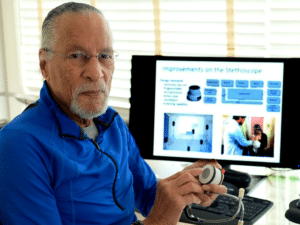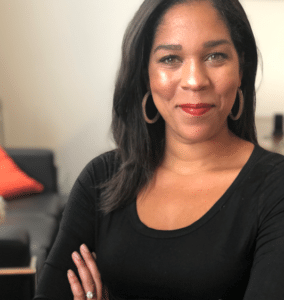KEYNOTE LECTURES
Monday, 7 December 2020, 4:30 p.m.
A digital stethoscope with active noise suppression and automatic detection of abnormalities in lung sounds
James E. West and Ellington S. West, Sonavi Labs
This address was presented at the ASA’s first online meeting, Acoustics Virtually Everywhere, in December, 2020. James West is a former ASA president, as well as a winner of both the silver and gold medal of the ASA. His work developing the electret microphone is world renowned and resulted in his inductance into the National Inventors Hall of Fame. He has also dedicated his life to mentoring, showcasing and encouraging the work and success of Black scientists and other people of color. His current work uses acoustics and AI to allow stethoscopes to detect and diagnose diseases of the lungs. He and Ellington West, a healthcare business developer and marketing leader, have founded Sonavi labs to promote this venture. Their keynote lecture discusses the scientific features, the development and the use of this new stethoscope in hospitals around the world, especially locales with limited health care facilities
Abstract
Auscultation, the action of listening to sounds from the body, typically with a stethoscope, as a part of medical diagnosis remains one of the most common, and cost-effective diagnostic practices but requires a high level of expertise. Although widely practiced, it is undermined by subjectivity in interpretation, limiting the ability to accurately interpret sounds objectively and repeatedly. Frequently, high environmental noise levels render conventional stethoscopes useless. It is also true that substantial experience is required in order to properly diagnose lung abnormalities such as pneumonia and Covid-19. Here we present a digital stethoscope with active noise suppression and an artificial intelligence algorithm (AI) that identifies lung abnormalities with accuracy comparable to trained medical personnel. This new line of respiratory diagnostic tools is appropriate for community health workers in under-resourced regions, for chronic respiratory patients in their home, and for medical professionals in noisy clinics, who wish to improve their ability to hear and interpret lung sounds. This conversation will also explore the opportunities and obstacles associated with bringing a product from the lab to the marketplace.
James E. West is currently Professor at Johns Hopkins University, Department of Electrical and Computer Engineering and the Department of Mechanical Engineering. His pioneering research on charge storage and transport in polymers (the electrical analogy of a permanent magnet) led to the development of electret transducers for sound recording and voice communication. West was inducted into The National Inventors Hall of Fame in 1999 for the invention of the electret microphone. He is a member of the National Academy of Engineering; a Fellow, and past President, of the Acoustical Society of America, and a Fellow of the IEEE. West is the recipient of the Acoustical Society of America's Silver and Gold Medals in Engineering Acoustics, the National Medal of Technology, and the Benjamin Franklin Medal in Engineering
Ellington West is the Co-Founder and CEO of Sonavi Labs. She brings over 10 years of experience in healthcare business development, market research and leadership to Sonavi Labs and is overseeing the development of the company's inaugural product line. Prior to founding Sonavi Labs, Ellington served as the Mid- Atlantic Director of Sales for a national healthcare organization, driving 250M in revenue annually. Ellington is best known for delivering record-breaking revenue and profit gains within highly competitive regional markets.
Tuesday, 8 June 2021, 4:00 p.m. EDT
Speech Acoustics and Mental Health Assessment
Carol Espy-Wilson, University of Maryland
 Carol Espy-Wilson is a Professor in the Electrical and Computer Engineering (ECE) Department and the Institute for Systems Research (ISR) at the University of Maryland. Dr. Espy-Wilson’s research is in speech communication. She combines knowledge of digital signal processing, speech acoustics, linguistics, machine learning and deep learning to conduct interdisciplinary research in speech production, speech and speaker recognition, speech enhancement and single-channel speech segregation. She also analyzes speech as a behavioral signal for emotion recognition, sentiment analysis and the detection and monitoring of mental health. Dr. Espy-Wilson received her B.S. in Electrical Engineering from Stanford University and her M.S., E.E. and Ph.D. degrees in Electrical Engineering from the Massachusetts Institute of Technology. Prior to joining the faculty at the University of Maryland, Dr. Espy-Wilson was a faculty member at Boston University. Her company, OmniSpeech, translated research in her lab on noise suppression and speech enhancement to technology that improves speech-enabled technology in any device, app or platform. Dr. Espy-Wilson is a Fellow of the Acoustical Society of America, the International Speech Communication Association, the Radcliffe Institute for Advanced Study at Harvard University, and a Senior Member of IEEE. Among the other honors and awards she has received for her research contributions are a Clare Boothe Luce Professorship, a Career Award from the National Institutes of Health, two Honda Initiation Awards, an Invention of the Year Award (2010) and an Innovator of the Year Award (2010). Dr. Espy-Wilson has served as the chair of the Speech Technical Committee of the Acoustical Society of America (ASA) and as an elected member of the Speech and Language Technical Committee of IEEE. She has served on the board of ASA’s Acoustics Today and as an Associate Editor of the Journal of the Acoustical Society of America. For the National Institutes of Health she has been a member of the National Advisory Board for Medical Rehabilitation and as a member of the Advisory Council of the National Institutes on Biomedical Imaging and Bioengineering. Currently, she is a member of the Advisory Council of the National Institutes of Deafness and other Communication Disorders.
Carol Espy-Wilson is a Professor in the Electrical and Computer Engineering (ECE) Department and the Institute for Systems Research (ISR) at the University of Maryland. Dr. Espy-Wilson’s research is in speech communication. She combines knowledge of digital signal processing, speech acoustics, linguistics, machine learning and deep learning to conduct interdisciplinary research in speech production, speech and speaker recognition, speech enhancement and single-channel speech segregation. She also analyzes speech as a behavioral signal for emotion recognition, sentiment analysis and the detection and monitoring of mental health. Dr. Espy-Wilson received her B.S. in Electrical Engineering from Stanford University and her M.S., E.E. and Ph.D. degrees in Electrical Engineering from the Massachusetts Institute of Technology. Prior to joining the faculty at the University of Maryland, Dr. Espy-Wilson was a faculty member at Boston University. Her company, OmniSpeech, translated research in her lab on noise suppression and speech enhancement to technology that improves speech-enabled technology in any device, app or platform. Dr. Espy-Wilson is a Fellow of the Acoustical Society of America, the International Speech Communication Association, the Radcliffe Institute for Advanced Study at Harvard University, and a Senior Member of IEEE. Among the other honors and awards she has received for her research contributions are a Clare Boothe Luce Professorship, a Career Award from the National Institutes of Health, two Honda Initiation Awards, an Invention of the Year Award (2010) and an Innovator of the Year Award (2010). Dr. Espy-Wilson has served as the chair of the Speech Technical Committee of the Acoustical Society of America (ASA) and as an elected member of the Speech and Language Technical Committee of IEEE. She has served on the board of ASA’s Acoustics Today and as an Associate Editor of the Journal of the Acoustical Society of America. For the National Institutes of Health she has been a member of the National Advisory Board for Medical Rehabilitation and as a member of the Advisory Council of the National Institutes on Biomedical Imaging and Bioengineering. Currently, she is a member of the Advisory Council of the National Institutes of Deafness and other Communication Disorders.
Wednesday, 9 June 2021, 4:30 p.m. EDT A Personal Perspective and Journey through DEI & STEM Sylvester James Gates, Jr., Brown University
Abdus Salam, a 1979 Nobel Prize recipient in Physics, once told the speaker there was a possibility of “Jazz in Physics” coming into existence when the field became more diverse. This presentation will present a personal interpretation and story on the meaning of this “puzzling” comment and how it led to a citation by the Supreme Court of the United States.
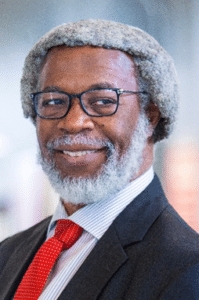 Sylvester James “Jim” Gates, Jr., (born December 15, 1950) is an American theoretical physicist. He received two B.S. degrees and a Ph.D. degree from the Massachusetts Institute of Technology, the latter in 1977. His doctoral thesis was the first one at MIT to deal with supersymmetry. In 2017, Gates retired from the University of Maryland, and is currently the Brown Theoretical Physics Center Director, Ford Foundation Professor of Physics, an Affiliate Mathematics Professor, and a Faculty Fellow, Watson Institute for International Studies & Public Affairs at Brown University. While at the University of Maryland, College Park, Gates was a University System Regents Professor, the John S. Toll Professor of Physics, the Director of the String and Particle Theory Center, and Affiliate Professor of Mathematics. Gates served on the U.S. President’s Council of Advisors on Science and Technology, contemporaneously on the Maryland State Board of Education from 2009-2016, and the National Commission on Forensic Science from 2013-2016. He is known for his work on supersymmetry, supergravity, and superstring theory. In 1984, working with M.T. Grisaru, M. Rocek, W. Siegel, Gates co-authored Superspace, the first comprehensive book on the topic of supersymmetry. In 2017, working with Frank Blitzer and Stephen Jacob Sekula, he co-authored Reality in the Shadows (Or) What the Heck's the Higgs? In 2019, together with Cathie Pelletier, he co-authored Proving Einstein Right: The Daring Expeditions that Changed How We Look at the Universe. In 2006, he completed a DVD series titled Superstring Theory: The DNA of Reality for The Teaching Company composed of 24 half-hour lectures to make the complexities of unification theory comprehensible to non-physicists. In 2012, he was named a University System of Maryland Regents Professor, only the sixth person so recognized in the system’s history. He is a past president of the National Society of Black Physicists, and is a NSBP Fellow, as well as a Fellow of the American Physical Society, the American Association for the Advancement of Science, and the Institute of Physics in the U.K. In 2019 he was elected to the presidential line of the APS where he is currently serving as President. He also is an elected member of the American Academy of Arts and Sciences, and the American Philosophical Society. In 2013, he was elected to the National Academy of Sciences, becoming the first African-American theoretical physicist so recognized in its 150-year history. On November 16, 2013, Prof. Gates was awarded the Mendel Medal by Villanova University “in recognition of his influential work in supersymmetry, supergravity and string theory, as well as his advocacy for science and science education in the United States and abroad.” President Obama awarded Prof. Gates the 2011 National Medal of Science, the highest award given to scientists in the U.S., at a White House ceremony in 2013. During 2014, he was named the Harvard Foundation’s “Scientist of the Year.” In 2019, he was invited to serve on the American Bar Assoc Steering Committee for the Annual Prescription For Criminal Justice And Forensic Science. In 2020, he began serving on the Board of Trustees of the Mathematical Sciences Research Institute. He continues to broadly engage video documentaries with appearances or cameos. He currently continues his research in supersymmetry in systems of particles, fields, and strings.
Sylvester James “Jim” Gates, Jr., (born December 15, 1950) is an American theoretical physicist. He received two B.S. degrees and a Ph.D. degree from the Massachusetts Institute of Technology, the latter in 1977. His doctoral thesis was the first one at MIT to deal with supersymmetry. In 2017, Gates retired from the University of Maryland, and is currently the Brown Theoretical Physics Center Director, Ford Foundation Professor of Physics, an Affiliate Mathematics Professor, and a Faculty Fellow, Watson Institute for International Studies & Public Affairs at Brown University. While at the University of Maryland, College Park, Gates was a University System Regents Professor, the John S. Toll Professor of Physics, the Director of the String and Particle Theory Center, and Affiliate Professor of Mathematics. Gates served on the U.S. President’s Council of Advisors on Science and Technology, contemporaneously on the Maryland State Board of Education from 2009-2016, and the National Commission on Forensic Science from 2013-2016. He is known for his work on supersymmetry, supergravity, and superstring theory. In 1984, working with M.T. Grisaru, M. Rocek, W. Siegel, Gates co-authored Superspace, the first comprehensive book on the topic of supersymmetry. In 2017, working with Frank Blitzer and Stephen Jacob Sekula, he co-authored Reality in the Shadows (Or) What the Heck's the Higgs? In 2019, together with Cathie Pelletier, he co-authored Proving Einstein Right: The Daring Expeditions that Changed How We Look at the Universe. In 2006, he completed a DVD series titled Superstring Theory: The DNA of Reality for The Teaching Company composed of 24 half-hour lectures to make the complexities of unification theory comprehensible to non-physicists. In 2012, he was named a University System of Maryland Regents Professor, only the sixth person so recognized in the system’s history. He is a past president of the National Society of Black Physicists, and is a NSBP Fellow, as well as a Fellow of the American Physical Society, the American Association for the Advancement of Science, and the Institute of Physics in the U.K. In 2019 he was elected to the presidential line of the APS where he is currently serving as President. He also is an elected member of the American Academy of Arts and Sciences, and the American Philosophical Society. In 2013, he was elected to the National Academy of Sciences, becoming the first African-American theoretical physicist so recognized in its 150-year history. On November 16, 2013, Prof. Gates was awarded the Mendel Medal by Villanova University “in recognition of his influential work in supersymmetry, supergravity and string theory, as well as his advocacy for science and science education in the United States and abroad.” President Obama awarded Prof. Gates the 2011 National Medal of Science, the highest award given to scientists in the U.S., at a White House ceremony in 2013. During 2014, he was named the Harvard Foundation’s “Scientist of the Year.” In 2019, he was invited to serve on the American Bar Assoc Steering Committee for the Annual Prescription For Criminal Justice And Forensic Science. In 2020, he began serving on the Board of Trustees of the Mathematical Sciences Research Institute. He continues to broadly engage video documentaries with appearances or cameos. He currently continues his research in supersymmetry in systems of particles, fields, and strings.
Monday, 29 November 2021, 4:00 p.m. PST An Unexpected Journey Through Sound Tyrone M. Porter, University of Texas at Austin
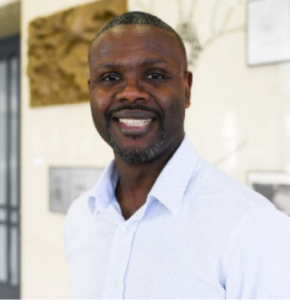 Professor Tyrone Porter holds the Donald J. Douglass Centennial Professorship in Engineering and is chair of the Department of Biomedical Engineering at The University of Texas at Austin. He is a fellow of the American Institute for Medical and Biological Engineering and the Acoustical Society of America, and a member of many professional societies including the Acoustical Society of America, Institute of Electrical and Electronics Engineers, Controlled Release Society, National Society of Black Engineers, and others. Porter’s research interests include image-guided drug delivery, ultrasound, acoustics, with an overall goal to push the application of ultrasound technology in new and exciting directions, including immunomodulation and reversible opening of the blood-brain barrier. Porter previously worked as an associate professor of mechanical engineering at Boston University. He completed a postdoctoral fellowship in biomedical engineering at the University of Cincinnati. He received his Ph.D. in bioengineering from University of Washington, and a B.S. in electrical engineering from Prairie View A&M University. Abstract Growing up in Detroit in the 1980s, I never envisioned a career in acoustics…not because I was told I could not but because I wasn’t told I could. I did not learn about the academic and professional opportunities in biomedical ultrasound until halfway through my undergraduate program. But as a doctoral student, the lack of Black representation in acoustics raised many doubts and fears…doubts in my own abilities and fears that the acoustic community would not accept me. I was embraced by members of the ASA, which empowered me to take the road less traveled. I am here today to share how this unexpected journey through sound has shaped me personally and professionally and thoughts on how I and the ASA can continue to broaden participation in acoustics.
Professor Tyrone Porter holds the Donald J. Douglass Centennial Professorship in Engineering and is chair of the Department of Biomedical Engineering at The University of Texas at Austin. He is a fellow of the American Institute for Medical and Biological Engineering and the Acoustical Society of America, and a member of many professional societies including the Acoustical Society of America, Institute of Electrical and Electronics Engineers, Controlled Release Society, National Society of Black Engineers, and others. Porter’s research interests include image-guided drug delivery, ultrasound, acoustics, with an overall goal to push the application of ultrasound technology in new and exciting directions, including immunomodulation and reversible opening of the blood-brain barrier. Porter previously worked as an associate professor of mechanical engineering at Boston University. He completed a postdoctoral fellowship in biomedical engineering at the University of Cincinnati. He received his Ph.D. in bioengineering from University of Washington, and a B.S. in electrical engineering from Prairie View A&M University. Abstract Growing up in Detroit in the 1980s, I never envisioned a career in acoustics…not because I was told I could not but because I wasn’t told I could. I did not learn about the academic and professional opportunities in biomedical ultrasound until halfway through my undergraduate program. But as a doctoral student, the lack of Black representation in acoustics raised many doubts and fears…doubts in my own abilities and fears that the acoustic community would not accept me. I was embraced by members of the ASA, which empowered me to take the road less traveled. I am here today to share how this unexpected journey through sound has shaped me personally and professionally and thoughts on how I and the ASA can continue to broaden participation in acoustics.
Monday, 23 May 2022, 4:00 p.m. MDT Understanding Echoes Wu-Jung Lee, University of Washington, Seattle
 Wu-Jung Lee is a Senior Oceanographer at the Applied Physics Laboratory, University of Washington in Seattle, WA, USA. She received her B.S. degrees in Electrical Engineering and Life Science from National Taiwan University and her Ph.D. from the Massachusetts Institute of Technology-Woods Hole Oceanographic Institution Joint Program in Oceanography. Prior to joining APL-UW, she took a detour from ocean acoustics to study bat echolocation as a F.V. Hunt Postdoctoral Fellow of the ASA at Johns Hopkins University.
Wu-Jung Lee is a Senior Oceanographer at the Applied Physics Laboratory, University of Washington in Seattle, WA, USA. She received her B.S. degrees in Electrical Engineering and Life Science from National Taiwan University and her Ph.D. from the Massachusetts Institute of Technology-Woods Hole Oceanographic Institution Joint Program in Oceanography. Prior to joining APL-UW, she took a detour from ocean acoustics to study bat echolocation as a F.V. Hunt Postdoctoral Fellow of the ASA at Johns Hopkins University.
Dr. Lee enjoys working on problems that bridge across disciplinary boundaries and with people with different backgrounds. Her research spans two primary areas: acoustical oceanography and animal echolocation. In acoustical oceanography, she develops physics-based and data-driven methods to extract biological information from active acoustic observations of the ocean. In animal echolocation, she combines experimental and computational approaches to study the sonar of bats and dolphins as biological models for engineering insights.
Dr. Lee actively contributes to open-source scientific software and leads the development of Echopype, a Python library for interoperable and scalable processing of ocean sonar data. She is also an advocate for a more inclusive and supportive research community. Since 2018 she has led and co-led the organization of OceanHackWeek, a workshop dedicated to building a community centered around data science in oceanography that embraces these values.
Dr. Lee loves going to the sea despite being very prone to motion sickness. Outside of work, she enjoys spending time in the mountains and drawing.
Abstract
By sending out sounds and analyzing the returning echoes, both humans and animals use active acoustic sensing systems to probe and understand the environment. High-frequency sonar systems, or echosounders, are the workhorse for observing fish and zooplankton in the ocean. Toothed whales and bats navigate and forage via echolocation in the air and under water. In this talk, I will discuss our work with both engineered and biological sonar systems to enable effective extraction and interpretation of information embedded in the echoes. We are developing data-driven methodologies and open-source software tools to tackle challenges imposed by large volumes of echosounder data rapidly accumulating across the global ocean. Using echolocating toothed whales as a model, we are combining experimental and computational approaches to understand biological processing of echo information. Throughout the talk, I will highlight the pivotal role of collaboration in my professional and personal development, and discuss efforts by colleagues and myself to cultivate a sense of community in our field.
Monday, 4-8 December 2022, 4:00 p.m. CST
Broadening participation in acoustics: Personal reflections and pathways forward
Lily M. Wang, University of Nebraska—Lincoln
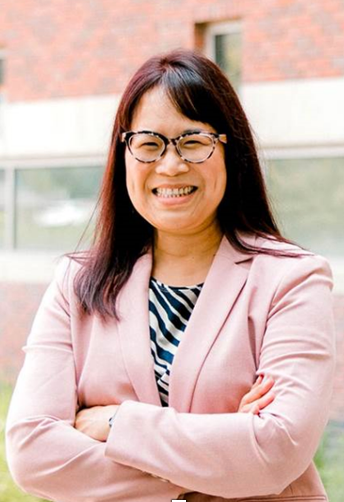 Dr. Lily Wang is the Charles W. and Margre H. Durham Distinguished Professor of Engineering and Technology, and Director of the Durham School of Architectural Engineering and Construction in the College of Engineering at the University of Nebraska – Lincoln. Her primary research interests are in room acoustics and noise control. Her research group's work on human perception and performance in noise, classroom acoustics, uncertainty in acoustic measurements, and room acoustics computer modeling has been funded by AHRI, ASHRAE, the Environmental Protection Agency, the National Institute of Health, the National Science Foundation, and the Veneklasen Research Foundation.
Dr. Lily Wang is the Charles W. and Margre H. Durham Distinguished Professor of Engineering and Technology, and Director of the Durham School of Architectural Engineering and Construction in the College of Engineering at the University of Nebraska – Lincoln. Her primary research interests are in room acoustics and noise control. Her research group's work on human perception and performance in noise, classroom acoustics, uncertainty in acoustic measurements, and room acoustics computer modeling has been funded by AHRI, ASHRAE, the Environmental Protection Agency, the National Institute of Health, the National Science Foundation, and the Veneklasen Research Foundation.
Dr. Wang is a Fellow of the Acoustical Society of America (ASA); Board-Certified by the Institute of Noise Control Engineering; a Professional Engineer licensed in Acoustics through the state of Oregon; and a recipient of the ASA Hunt Postdoctoral Fellowship, ASA R. Bruce Lindsay Award, NSF CAREER Award, and ASHRAE Ralph G. Nevins Physiology and Human Environment Award. She has also received a number of teaching and mentoring awards, including the ASA Student Council Mentoring Award. She has served as ASA President (2018-19), Vice-President (2015-16) and Chair of the its Technical Committee on Architectural Acoustics (2004-07).
Photo credit: M. Julie Photo
Abstract It has been over 30 years since the author embarked on pursuing acoustics and engineering as a career. At the first Acoustical Society of America’s (ASA) Technical Committee in Architectural Acoustics meeting that the author attended in the early 1990s, there were two women in the filled room, of whom the author was one. Overall, these past three decades have provided a fulfilling and positive professional experience, but there have been moments where the author leaned on demonstrating resilience, sought to rise above feelings of not being good enough, and made career choices and conducted research differently than might have been expected. In this presentation, the author shares personal reflections on her experience, as well as thoughts on how the ASA and its members can build on recent momentum to continue to broaden participation in acoustics, particularly among underrepresented groups. The author was tasked to lead diversity, equity and inclusion efforts in the College of Engineering at the University of Nebraska – Lincoln as an Associate Dean of Faculty and Inclusion beginning in 2018. A summary of data, tactics, and strategies undertaken since then are shared as possible pathways forward, that could be replicated in others’ research groups and communities.
Monday, 4 May 2023, 4:00 p.m. CST Clinical research in acoustics: Reflections on a journey from bench to bedside and back again Frederick J. Gallun, Oregon Hearing Research Center, Oregon Health and Science University Frederick J. Gallun, Ph.D. received his undergraduate degree from Reed College in 1993 and his PhD from UC Berkeley in 2003, both in cognitive psychology. From 2003-2006, Gallun conducted an NIH-funded postdoctoral fellowship in Communication Disorders at Boston University. In 2006, he joined the VA RR&D National Center for Rehabilitative Auditory Research and turned his attention to the auditory processing problems of Veterans. In 2019 he joined the faculty of Oregon Health and Science University, where he continues his research into auditory processing with a focus on the broader population of all people experiencing aging, hearing loss, brain injury, and other conditions that can affect the ability to process sound. The laboratory has been developing multiple approaches to using consumer electronics such as tablet computers and virtual reality headsets to improve the assessment and rehabilitation of auditory processing. More information on his research into auditory processing among typical and atypical listeners can be found in this 2019 podcast interview with Dr. Gallun https://podcasts.apple.com/us/podcast/cognation/id1450113652?i=1000454356924 Dr. Gallun is a Fellow of the Acoustical Society of America, serves on the Board of Directors for the American Auditory Society (2021-2023), is Chair of the American Speech-Language-Hearing Association (ASHA) Journals Board (2022-2024), and also serves as Senior Editor for Registered Reports at the Journal of Speech, Language, and Hearing Research (JSLHR). He is past Chair of the Technical Committee for Psychological and Physiological Acoustics for the ASA (2018-2020), and past Editor-in-Chief for Hearing at JSLHR (2017-2020).
Abstract
Thirty years ago, the author entered the field of acoustical research, curious as to how the human mind processes music. That searchquickly led to the field of psychoacoustics and explorations of how basic sound elements are processed, which was presented at an ASA meeting in 1996. In 1999, the author had a benign tumor removed from his auditory nerve, leaving him deaf in his right ear. Over the next few years this led to his increasing interest in how people with altered hearing process sound. This presentation will describe the journey into clinical research that resulted, the amazing collaborative community that exists in hearing research, both on the clinical and basic sides, and how important it is to form connections among researchers and clinicians in order to fully explore the questions of how humans understand sound.

